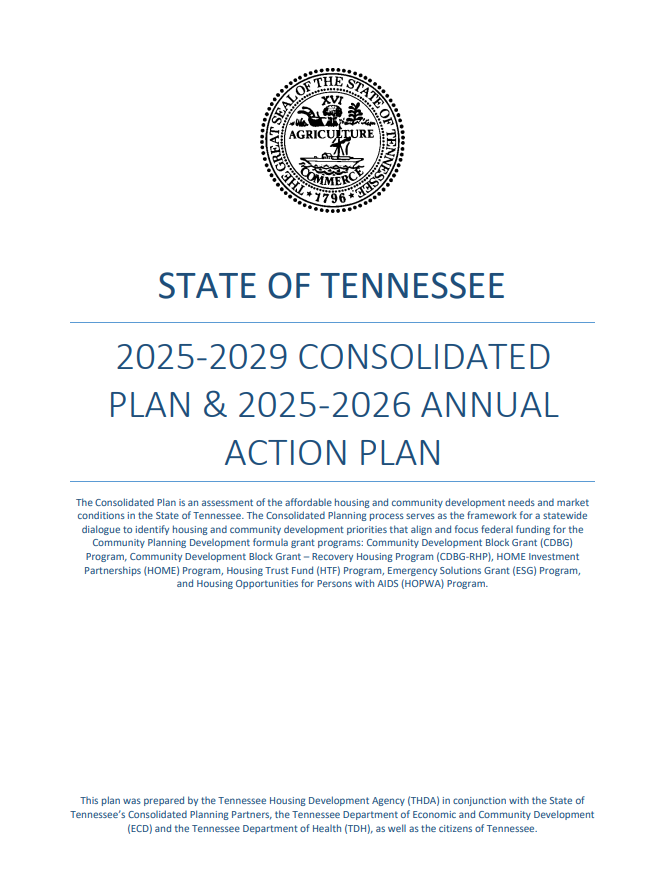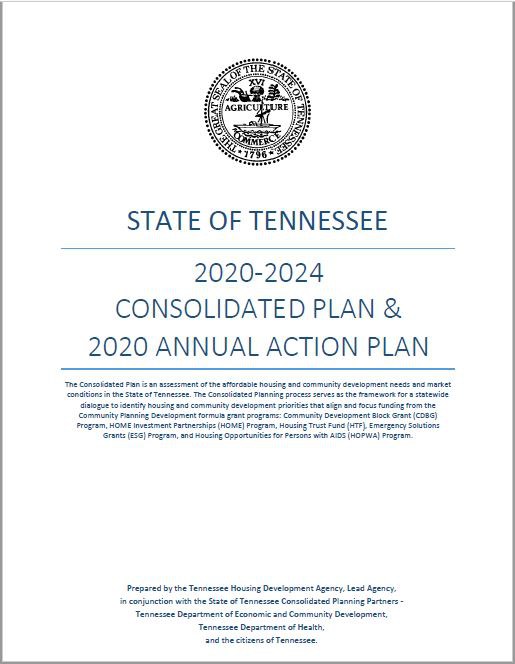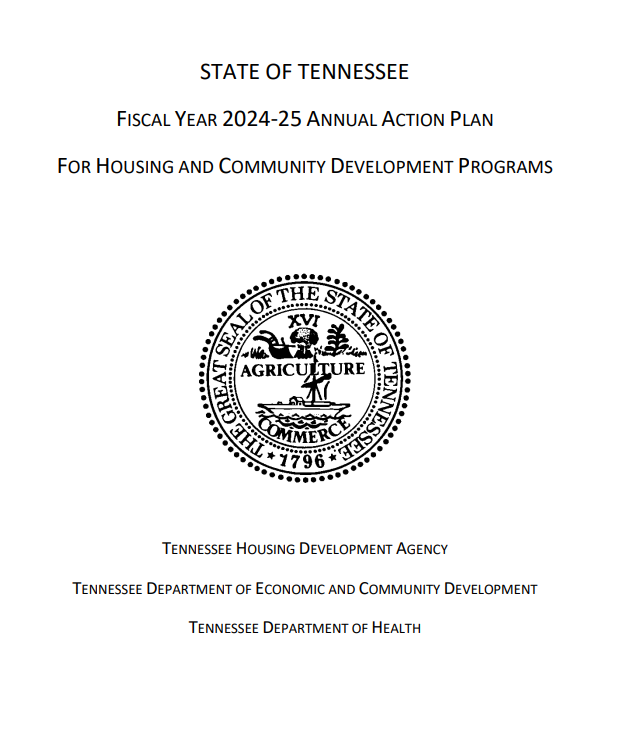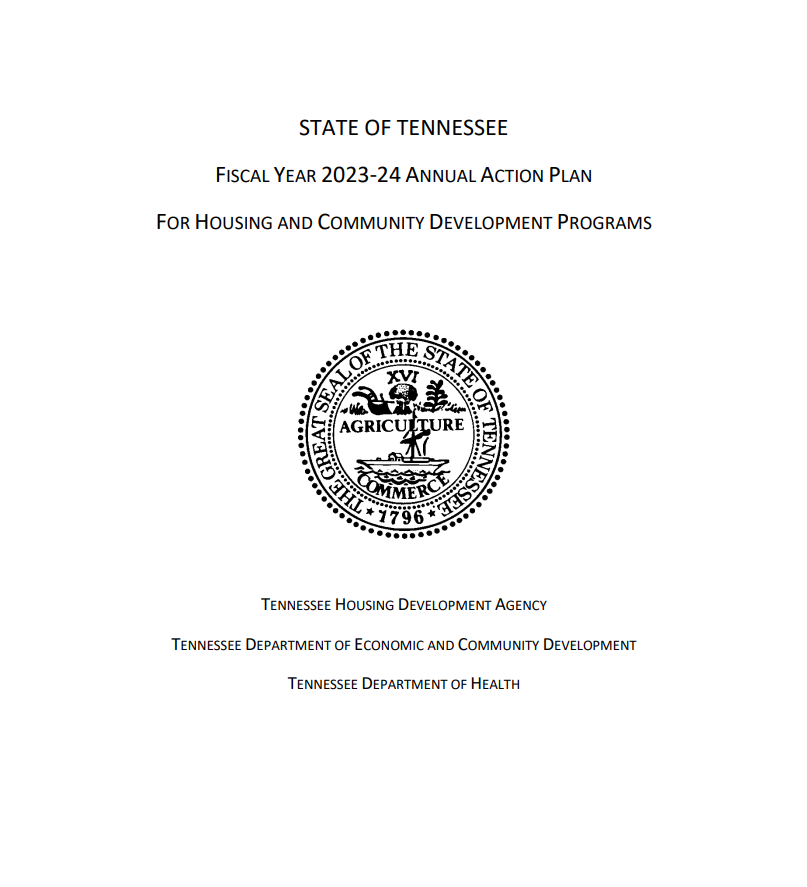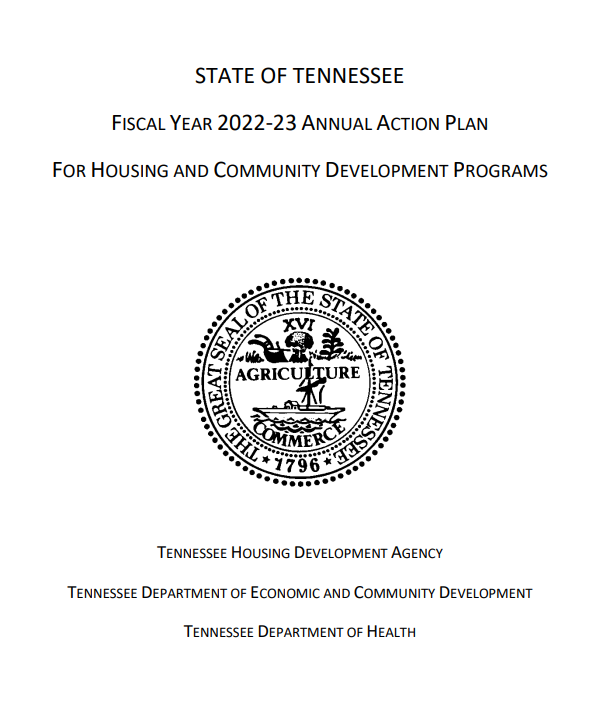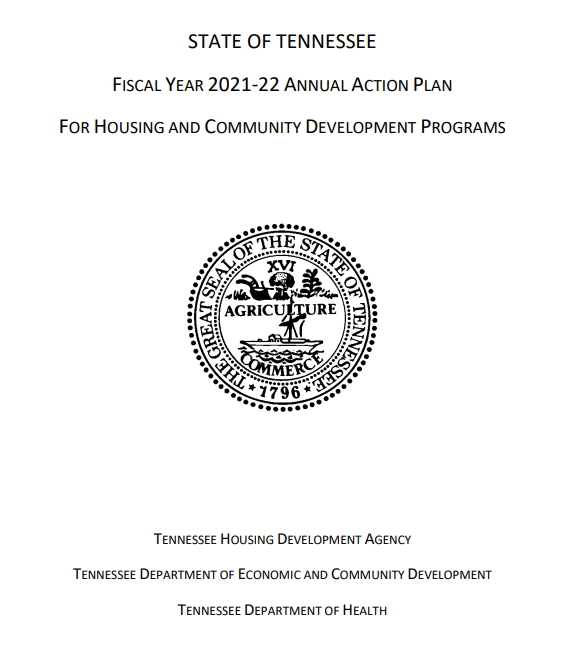The Consolidated Plan is a five-year action plan the State of Tennessee prepares to set strategic priorities for federal funding the U.S. Department of Housing and Urban Development provides for five formula grant programs, including the Community Development Block Grant (CDBG), the HOME Investment Partnerships Program, the Housing Trust Fund program, the Emergency Solutions Grant program, and the Housing Opportunities for Persons with HIV/AIDS program.

The five formula grant programs focus on the following types of activities:
- The Community Development Block Grant (CDBG) program develops and improves public facilities and infrastructure in low-and-moderate income communities in Tennessee.
- The HOME Investment Partnership Program (HOME) program promotes the production, preservation, and rehabilitation of single-family homes and rural rental housing for low-income households.
- The Housing Trust Fund (HTF) program funds the development and rehabilitation of rental housing for extremely low-income households.
- The Emergency Solutions Grant (ESG) program provides resources and services to enable people experiencing homelessness or those at risk of becoming homeless to gain stability in permanent housing.
- The Housing Opportunities for Persons with AIDS Program (HOPWA) program provides housing assistance and services to support low-income people living with HIV/AIDS and their families.
The Consolidated Plan is a five-year action plan the State of Tennessee prepares to set strategic priorities for federal funding the U.S. Department of Housing and Urban Development provides for five formula grant programs. The Annual Action Plan outlines the State of Tennessee’s goals for annual program funding. The Consolidated Annual Performance Evaluation and Report (CAPER) outlines the State of Tennessee’s outcomes and accomplishments with annual program funding.

